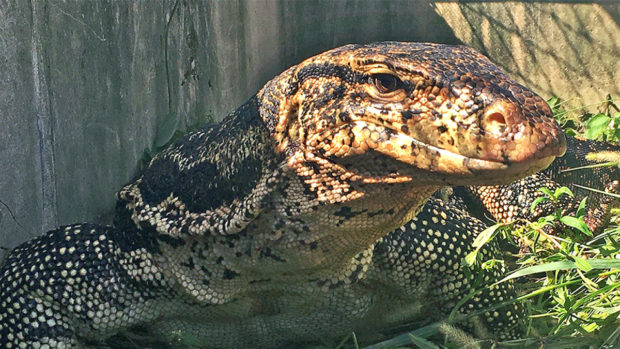Florida man convicted of smuggling lizards from PH

Akbar Akram of Florida pleaded guilty to smuggling monitor lizards, like the one pictured above, from the Philippines. AP PHOTO
TAMPA, Florida — A Florida man pleaded guilty to his part in a trafficking scheme in which live water monitor lizards were stuffed into socks and concealed inside electronics to be smuggled from the Philippines to the United States.
Akbar Akram, 44, pleaded guilty in Tampa federal court Wednesday to one count of wildlife trafficking in violation of the Lacey Act and the the Convention on International Trade in Endangered Species Treaty, court records show.
Akram admitted to illegally importing more than 20 live water monitor lizards from the Philippines in 2016, a U.S. Justice Department statement said. He avoided customs authorities by placing the lizards in socks, which were sealed closed with tape and concealed inside electronic equipment and shipped under a false label. The equipment was transported through commercial carriers to Akram’s associate in Massachusetts.
As part of his plea, Akram admitted that he knew the monitor lizards he received had been taken in violation of Philippine law and that the import violated U.S. law, according to the statement. Akram also admitted that upon receiving the monitor lizards, he sold some of them to customers in Colorado, Connecticut and Massachusetts.
Approximately 70 monitor lizard species are characterized by elongated necks, heavy bodies, long-forked tongues, strong claws and long tails. Water monitor lizards are native to South and Southeastern Asia. The yellow-headed water monitor, the white-headed water monitor and the marbled water monitor are found in the Philippines.

